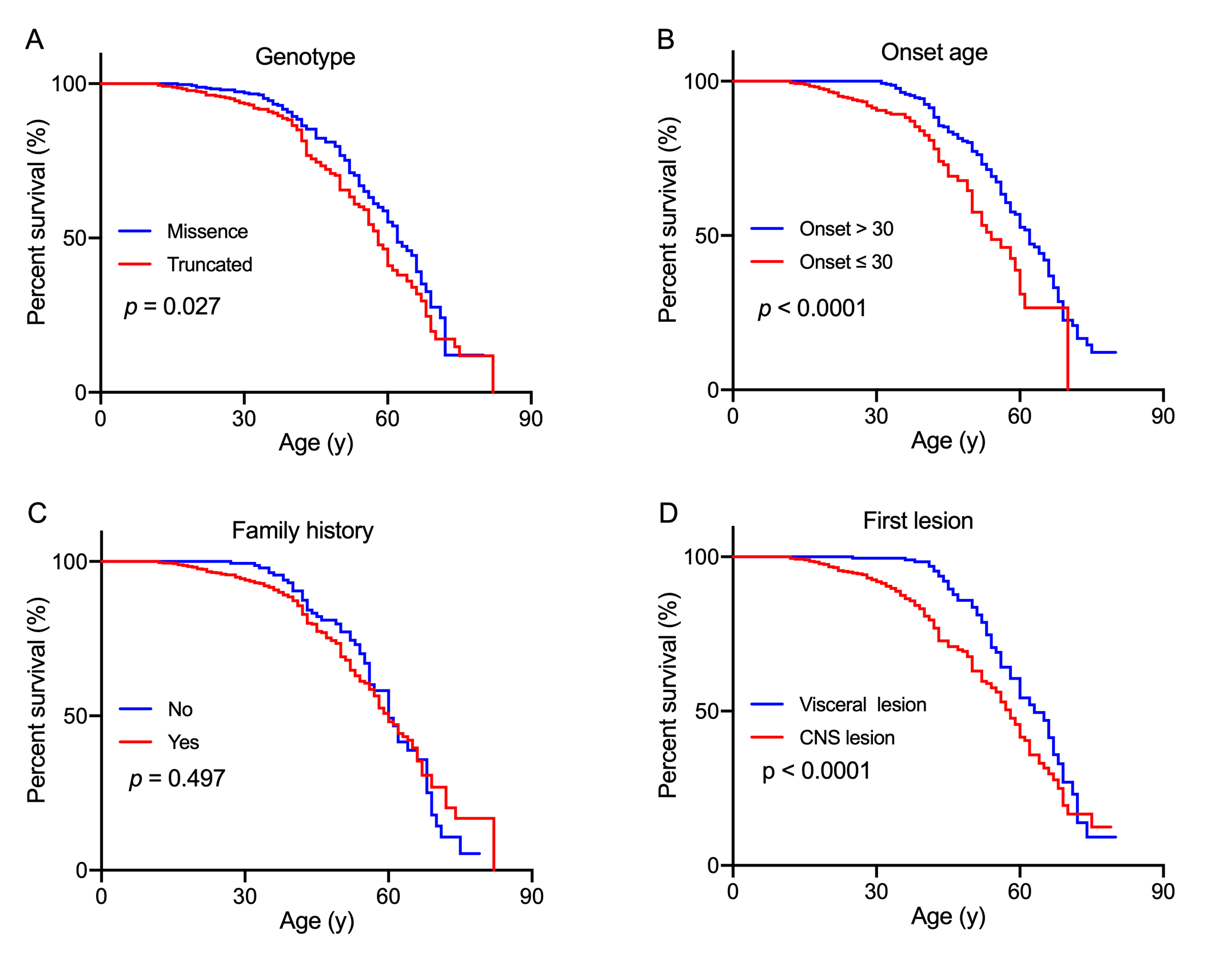Back
Poster, Podium & Video Sessions
Podium
Kidney Cancer: Epidemiology & Evaluation/Staging/Surveillance II
PD18-04: Hazard of death in von Hippel-Lindau disease patients depends on genotype and onset age as well as first affected lesion
Saturday, May 14, 2022
7:30 AM – 7:40 AM
Location: Room 255
Kaifang Ma*, Lin Cai, Kan Ging, Beijing, China, People's Republic of

Kaifang Ma
Peking University First Hospital
Podium Presenter(s)
Introduction: Historically, von Hippel-Lindau disease (vHL) is characterized by poor survival resulting from multi-organ lesions and higher morbidity. The present study sought to determine the effect of various genetic and clinical factors on survival in patients with vHL.
Methods: In this cohort study, we recruited 768 VHL mutation carriers from 299 vHL families who were retrospectively followed for a total of 30636 person-years. Cox regression models and Kaplan-Meier plot were used to evaluate the effect of genotype, gender, onset age, family history, birth order and first affected lesion on survival.
Results: The predicted mean life expectancy for vHL patients was 60 years, and 205 patients died in the study subjects. Individuals with truncated mutation genotype, earlier-onset age and CNS tumour as the first affected lesion had a significantly higher risk of all-cause death, vHL-related death and central nervous system hemangioblastoma-specific death. Male patients had a mortality hazard from renal cell carcinoma that was twice as high as female patients (HR = 1.96, 95%CI: 1.245-3.099, P = 0.005).
Conclusions: The vHL survival study indicated that genotype, onset age, first affected lesion, as well as gender have significant effects on survival. These findings provide a basis for genetic counseling and development of guidelines for vHL surveillance.
Source of Funding: This work was financially supported by the National Natural Science Foundation of China (No. 82172617; 82172665; 81872081), the Fundamental Research Funds for the Central Universities (No. BMU2018JI002), and Beijing Key Laboratory of Urogenital diseases (male) molecular diagnosis and treatment center.


Methods: In this cohort study, we recruited 768 VHL mutation carriers from 299 vHL families who were retrospectively followed for a total of 30636 person-years. Cox regression models and Kaplan-Meier plot were used to evaluate the effect of genotype, gender, onset age, family history, birth order and first affected lesion on survival.
Results: The predicted mean life expectancy for vHL patients was 60 years, and 205 patients died in the study subjects. Individuals with truncated mutation genotype, earlier-onset age and CNS tumour as the first affected lesion had a significantly higher risk of all-cause death, vHL-related death and central nervous system hemangioblastoma-specific death. Male patients had a mortality hazard from renal cell carcinoma that was twice as high as female patients (HR = 1.96, 95%CI: 1.245-3.099, P = 0.005).
Conclusions: The vHL survival study indicated that genotype, onset age, first affected lesion, as well as gender have significant effects on survival. These findings provide a basis for genetic counseling and development of guidelines for vHL surveillance.
Source of Funding: This work was financially supported by the National Natural Science Foundation of China (No. 82172617; 82172665; 81872081), the Fundamental Research Funds for the Central Universities (No. BMU2018JI002), and Beijing Key Laboratory of Urogenital diseases (male) molecular diagnosis and treatment center.



.jpg)
.jpg)